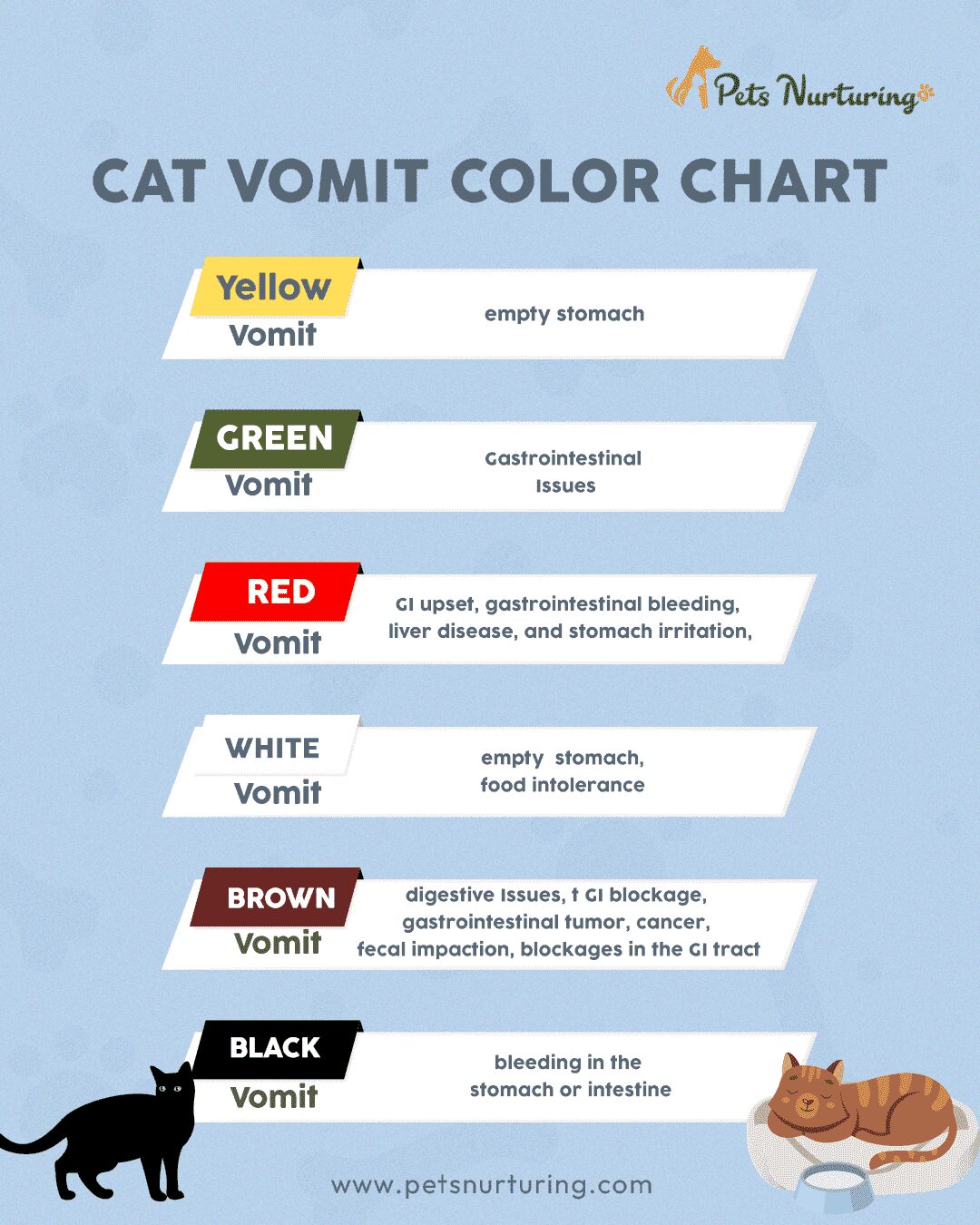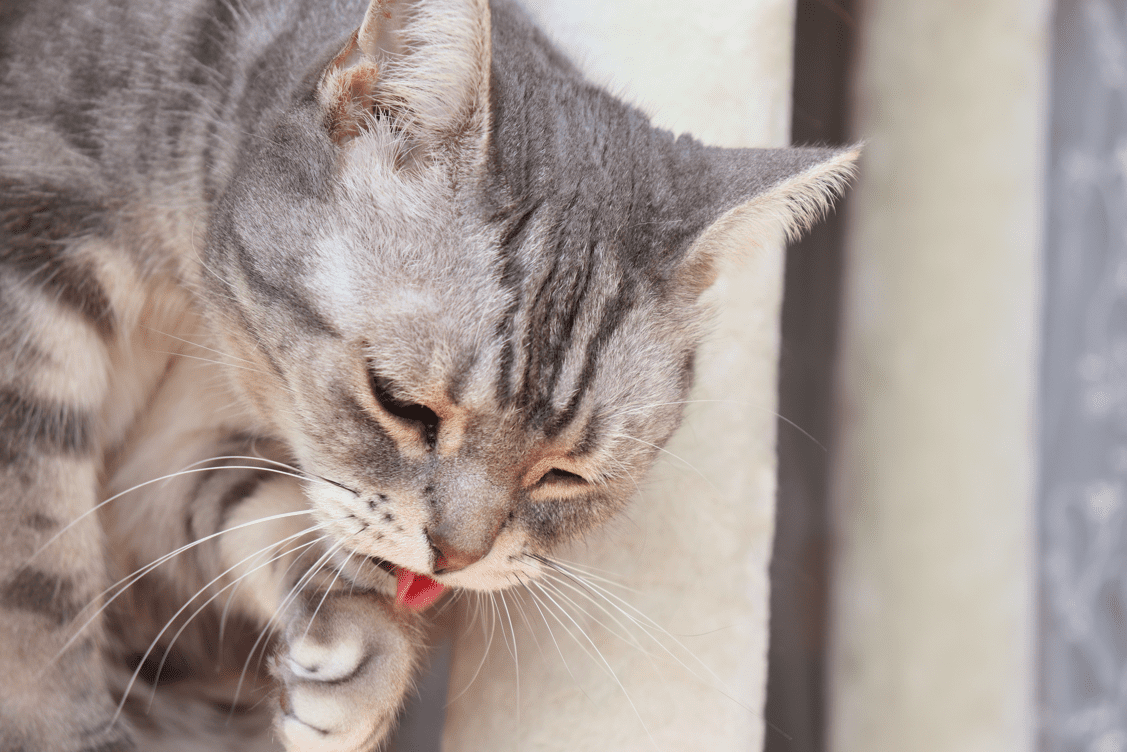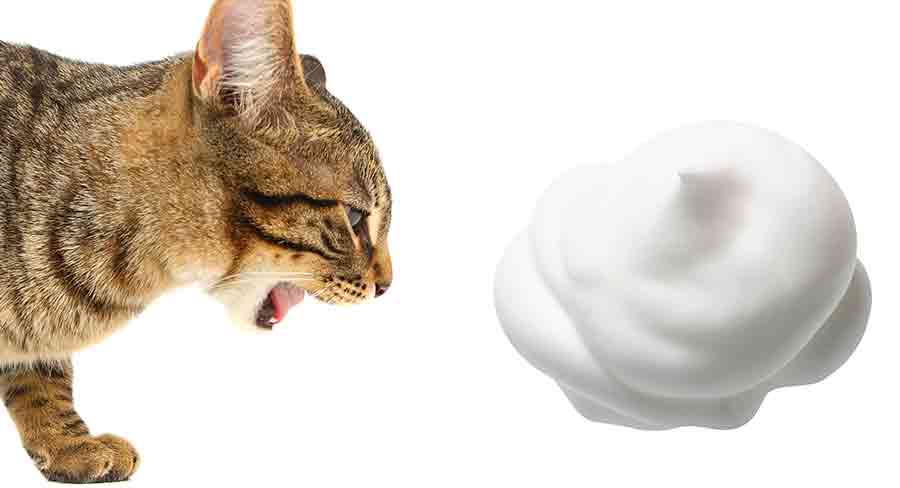Introduction:
Are you a cat owner who has ever been puzzled by the sight of your furry friend vomiting water? If so, you're not alone. Watery woes in cats can be quite common and understanding this topic is essential for every cat lover out there. In this article, we will delve into the reasons behind why cats vomit water and explore the value of gaining knowledge on this subject. So, get ready to uncover the fascinating world of feline physiology and discover how you can better care for your beloved pet. Get ready to be amazed by what lies beneath those adorable whiskers!
Key Takeaways:
- Cats may vomit water due to a variety of reasons, including hairballs, overeating, or underlying health issues.
- Regurgitating clear liquid is not always a cause for concern unless it becomes frequent or is accompanied by other symptoms.
- Providing regular grooming and hairball prevention measures can help reduce the likelihood of cats vomiting water.
- If a cat consistently vomits water or shows signs of illness, it is important to consult a veterinarian for proper diagnosis and treatment.
- Maintaining a balanced diet and feeding smaller, more frequent meals can help prevent excessive water intake that may lead to vomiting.
Understanding Watery Vomiting in Cats: What You Need to Know
What is watery vomiting?
Watery vomiting in cats refers to the expulsion of clear or slightly tinted fluid from their stomach through their mouth. This type of vomit does not contain any solid food particles and is usually thin and liquid-like in consistency. It can be alarming for cat owners to witness their feline companion vomiting water, but it is important to understand the possible causes and when it may indicate a health issue.
Why do cats vomit water?
Cats may vomit water due to various reasons, including:
- Indigestion: Sometimes, cats may drink too much water too quickly, leading to an upset stomach and subsequent watery vomiting.
- Hairballs: Cats groom themselves by licking their fur, which can lead to the ingestion of hair. If this hair accumulates in their stomach, it can cause irritation and result in watery vomiting.
- Dietary issues: Sudden changes in diet or consuming spoiled food can irritate a cat's digestive system, causing them to vomit water.
- Gastrointestinal disorders: Certain medical conditions like gastritis, pancreatitis, or inflammatory bowel disease can cause excessive production of gastric fluids and result in watery vomiting.
Why Do Cats Sometimes Vomit Water? Explained in Simple Terms
The role of stomach acids
Cats have strong stomach acids that aid in breaking down food during digestion. These acids are normally kept within the stomach by a muscular valve called the lower esophageal sphincter (LES). However, certain factors can weaken this valve or stimulate excessive acid production, leading to the expulsion of stomach contents, including water, through vomiting.
How cats eliminate toxins
Cats have a unique way of eliminating toxins from their body. Unlike humans who can sweat or excrete toxins through urine, cats primarily rely on their liver and kidneys for detoxification. When their body detects harmful substances, it may trigger a vomiting reflex as a defense mechanism to expel these substances. This can result in watery vomit if the cat has recently consumed water.
What Makes Cats More Prone to Vomiting Water Compared to Other Animals?
The anatomy of a cat's digestive system
Cats have a relatively short digestive tract compared to other animals, which means food passes through their system quickly. This fast transit time can make them more prone to vomiting as there is less time for proper digestion and absorption of nutrients. Additionally, the structure of a cat's stomach allows for quick expansion and contraction, facilitating the expulsion of stomach contents.
The grooming habits of cats
Cats are meticulous groomers and spend a significant amount of time licking their fur. While this helps keep their coat clean and shiny, it also leads to the ingestion of loose hair. As mentioned earlier, swallowed hair can accumulate in the stomach and cause irritation or blockages, resulting in watery vomiting.
Is Your Cat's Vomiting of Water Normal or a Sign of a Health Issue? Learn How to Tell.
Normal vs. abnormal vomiting
Occasional vomiting in cats is considered normal behavior as they may regurgitate hairballs or expel indigestible material from their stomachs. However, if your cat is consistently vomiting water without any apparent reason or shows other signs of illness such as loss of appetite, lethargy, or weight loss, it may be a sign of an underlying health issue. It is important to monitor the frequency and consistency of your cat's vomiting to determine if further veterinary attention is necessary.
When to seek veterinary care
If your cat's watery vomiting persists for more than 24 hours, is accompanied by blood or bile, or if your cat appears distressed or in pain, it is recommended to consult a veterinarian. They will be able to conduct a thorough examination and diagnostic tests to identify any underlying conditions that may be causing the watery vomiting.
Common Triggers for Cats Vomiting Water: What You Should Be Aware Of
When it comes to cats vomiting water, there are several common triggers that pet owners should be aware of. One possible cause is hairballs. Cats groom themselves by licking their fur, and sometimes they ingest a significant amount of hair. This can lead to the formation of hairballs in their stomachs, causing them to vomit water along with the hairball.
Another potential trigger for watery vomiting in cats is dietary indiscretion. Cats are curious creatures and may eat things they shouldn't, such as plants or spoiled food. This can irritate their digestive system and result in vomiting. Additionally, sudden changes in diet or feeding schedule can also lead to upset stomachs and watery vomit.
Hairballs
Hairballs are a common cause of cats vomiting water. When cats groom themselves, they swallow loose hairs which can accumulate in their stomachs over time. The accumulation of hair forms a ball-like mass that can cause discomfort and irritation, leading to vomiting.
Dietary Indiscretion
Cats have a tendency to explore their surroundings with their mouths, which means they may ingest things that are not meant for consumption. This could include plants, toxic substances, or spoiled food. Ingesting these items can upset their stomachs and result in watery vomiting.
Tips and Tricks to Preventing and Reducing Watery Vomiting in Cats
If you want to prevent or reduce watery vomiting episodes in your cat, there are some helpful tips and tricks you can try. First and foremost, make sure your cat has access to fresh water at all times. Dehydration can contribute to digestive issues and increase the likelihood of vomiting.
Another tip is to provide a balanced and appropriate diet for your cat. Ensure that their food is of high quality and suitable for their age and health condition. Avoid sudden changes in diet, as this can upset their stomachs. Additionally, consider feeding smaller, more frequent meals instead of one large meal to help prevent overeating.
Hydration
Proper hydration is essential for maintaining a healthy digestive system in cats. Make sure your cat always has access to clean and fresh water. Consider using a water fountain or providing multiple water bowls throughout your home to encourage regular drinking.
Dietary Consistency
Cats thrive on consistency when it comes to their diet. Stick to a high-quality cat food that suits your cat's specific needs and avoid sudden changes in their diet. Gradually transition them to new foods if necessary, as abrupt changes can lead to digestive upset and vomiting.
Natural Remedies and Home Treatments for Relieving Watery Vomiting in Cats
If your cat is experiencing watery vomiting, there are some natural remedies and home treatments you can try before seeking veterinary care. One option is to provide your cat with small amounts of plain canned pumpkin. The fiber content in pumpkin can help regulate digestion and reduce vomiting episodes.
Ginger is another natural remedy that may alleviate vomiting in cats. You can try giving your cat a small amount of ginger tea or adding a pinch of powdered ginger to their food. However, it's important to consult with a veterinarian before administering any herbal remedies.
Canned Pumpkin
Plain canned pumpkin, not the pie filling variety, contains soluble fiber that can aid in regulating digestion. Adding a teaspoon of canned pumpkin to your cat's food may help reduce watery vomiting episodes by promoting healthy bowel movements.
Ginger
Ginger has been used for centuries to alleviate digestive issues in humans, and it may have similar benefits for cats. However, it's crucial to consult with a veterinarian before giving your cat ginger, as the dosage and administration method need to be appropriate for their size and health condition.
Frequent Vomiting of Water in Cats: When Should You Consult a Veterinarian?
While occasional vomiting in cats is normal, frequent vomiting of water can be a cause for concern. If your cat is consistently vomiting water or experiencing other symptoms such as lethargy, loss of appetite, or weight loss, it's essential to consult a veterinarian.
Vomiting can be a sign of various underlying health issues in cats, including gastrointestinal disorders, infections, organ dysfunction, or even cancer. A veterinarian will be able to perform a thorough examination and diagnostic tests to determine the cause of the watery vomiting and provide appropriate treatment.
When to Seek Veterinary Care
- If your cat is vomiting water frequently or consistently
- If there are additional symptoms such as lethargy or loss of appetite
- If the vomit contains blood or appears abnormal in color or consistency
- If your cat has pre-existing health conditions that may contribute to vomiting
Caring for a Cat with Watery Vomiting at Home: Helpful Tips and Advice
If you find yourself caring for a cat with watery vomiting at home, there are several helpful tips and advice you can follow to ensure their comfort and well-being. First and foremost, make sure they have access to clean water at all times to prevent dehydration.
It's also important to monitor their food intake and consider feeding them small, frequent meals of easily digestible food. Avoid giving them any treats or human food that may further irritate their stomach.
Hydration
Proper hydration is crucial for cats experiencing watery vomiting. Ensure your cat has access to fresh water at all times. If they are not drinking enough, you can try offering them water from a syringe or using a pet-safe electrolyte solution to replenish their fluids.
Dietary Management
Feeding your cat a bland diet consisting of boiled chicken or fish with plain rice can help soothe their stomach and reduce vomiting episodes. Avoid feeding them rich or fatty foods that may exacerbate their symptoms. Consult with a veterinarian for specific dietary recommendations based on your cat's condition.
By following these tips and seeking veterinary care when necessary, you can help manage and alleviate watery vomiting in your beloved feline companion. Remember, each cat is unique, so it's important to consult with a veterinarian for personalized advice and treatment options.
In conclusion, cats may vomit water due to various reasons such as overeating, hairballs, or underlying health issues. It is important for cat owners to monitor their pet's behavior and consult a veterinarian if the vomiting persists or worsens.

















